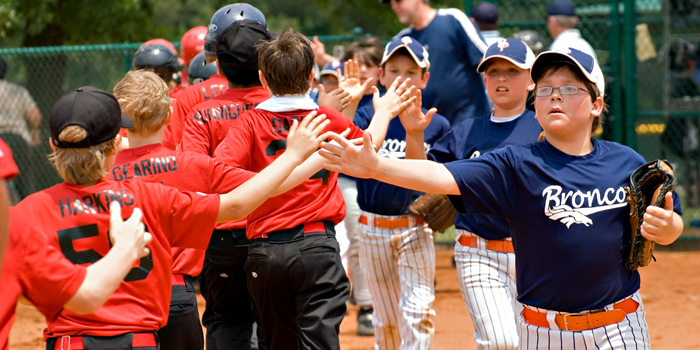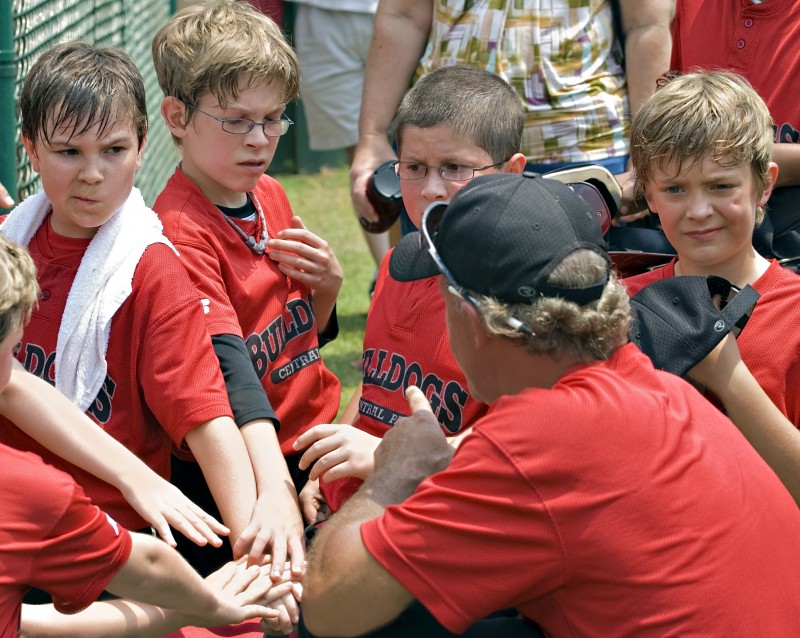
Mental toughness and grit seem to be a hot topic these days. Some say you can’t teach or coach it. Others think punishment is a form of mental toughness. I’m saying you need to look at it differently.
When many of us think about mentally tough people, we think of the Navy Seals Class 234 we grew up watching on the Discovery Channel: Running and swimming long miles; lifting logs over their heads; and doing calisthenics in the sand on a 90-degree day. The problem is those Navy Seals are professionals. They get paid to do it. You, on the other hand, are dealing with young athletes. Some of them may be in the Special Forces one day, but their athletic career isn’t the place to train them as such.
Just so you and I are on the same page, this article is not a guide to running your kids into the ground because, you know, “mental toughness.” If that’s what you’re looking for, I suggest you find a different career field.
RECENT: The Coach's Guide to Faster and Stronger Female Athletes (with 12-Week Template)
Anyways, let’s get a definition of what mental toughness is so we have something to work with. According to the Journal of Applied Sport Psychology, mental toughness in regards to athletics is stated as:
Having the natural or developed psychological edge that enables you to: generally, cope better than your opponents with the many demands (competition, training, lifestyle) that sport places on a performer; specifically, be more consistent and better than your opponents in remaining determined, focused, confident, and in control under pressure.
According to the definition, it appears we can develop mental toughness with our athletes. We can put them in situations where they have to remain “…determined, focused, confident, and in control under pressure.” These are all things we as coaches can help develop.
How do we build physical strength? We stress the system. We adapt.
How do we build mental strength? We stress the system. We adapt.
We can create mental toughness by putting our athletes through difficult situations. For many coaches, this means running them until they puke because 300-yard shuttles make complete sense for football players, especially ones weighing 300 pounds. You see, as a coach, we should help develop mental toughness in our athletes. We really should. They are going to face adversity in life both on and off the field. We need to give them the tools they need to get through it.
Our job is more than getting kids stronger and faster. We are developing these young athletes into adults. Everything they learn from you will have a direct effect on them. Instead of using exercise as punishment because they are humans and they make mistakes just like you and I, I suggest you rethink your strategy. Mental toughness is a skill. Just like box squatting or sprinting. It’s something we can be taught, and they can learn. Just need to look at it slightly different. What are some situations we can put our young athletes in that will stress their mental strength within our control and isn’t just exercise as punishment?

Susan Leggett © 123rf.com
Here are 10 things I’ve used over the years that I feel work pretty well in the development of mental toughness and strength:
1. Time
Teach your athletes how to be on time and to respect other people’s time. Teach them to be 15 minutes early. You can also have an early start time for training. This is great for developing mental toughness, as 1. they have to be on time, and 2. it shows how bad they want it. Those showing up for those early practices are the ones you will be able to count on later in the season.
Don’t do it all the time because young athletes need their sleep, but throw them in occasionally. You can even make them optional to see who shows up. Another thing you can do is to have odd start times, like 3:17 p.m. or 5:49 a.m. This teaches them attention to detail while also having to be on time. If they are late, they don’t train.
2. Handshakes and High Fives
We can all agree a good handshake and a really good high five goes a long way. It gives a lasting impression on whoever is receiving it. Teach them how to properly do both along with the appropriate time to do it. You can add in a look in the eyes and a proper greeting as well. Both will never go out of style.
3. Coaching
The weight room should build camaraderie. It’s a place where teams are built. Teaching your athletes how to coach each other does a few things. It gives them ownership of their program. Their teammates are going to have to trust each other to ensure the proper cues are being coached. This also builds communication skills and listening skills. Spotting your teammates during a heavy lift builds trust. Learning to coach also helps the athletes understand the movements better, which in turn helps them perform the movements better. Plus, it gives you more eyes in the weight room.
4. Pride
Football taught me this at an early age. Take pride in what you do. From how you carry yourself to the way you speak to others to how you tie your shoes. Every little thing you do, take pride in it.
RELATED: The Role of Mental Toughness
One of the best ways to teach athletes how to take pride in what they do starts with how the weight room looks. From putting weights back to cleaning the floors to dusting the racks. It’s their weight room. This is a life-long skill, and we all know those people in the gym who don’t pick up their weights when they are done. Don’t let your athletes be that person.
5. Listening Skills
Everybody has something to say, but nobody is willing to listen, especially younger athletes. Teaching them the importance of actively listening to what people say and not interrupting them or ignoring them is a lost art.
This goes both ways, though. You have to practice what you preach. You need to listen to your athletes. You have to be there for them.
6: Attitude and Effort
Teach them why their attitude and effort are the most important things they can control. To me, an athlete’s attitude and effort are everything. This is where you can teach mindset to your athletes. When they are in adverse situations, they will always be able to control these two things. They can put it in their mind that no matter the situation, they will execute at their highest level and give everything they have. They need to believe in themselves.
7. Patience
For years, I tried to develop a high school strength program, but the administration never saw its importance. My mentor at the time would always say to me, “Rome wasn’t built in a day.” At first, this over-used quote of his would make me roll my eyes and shake my head as a young coach. But after 10 years in the field, I truly understand its meaning. Patience is one of the most mentally tough things we go through in life. In a world with instant gratification, the weight room is a great place to teach that anything worth achieving requires patience and hard work.
8. Failure
Not everybody is a winner. Even championship players lose. We are going to fail. It’s inevitable. Your athletes need to make mistakes in order to acquire the information they need to improve. Be ready to teach and be there for them when they do. Getting them to know this and understand this will set them apart from others in this “everybody is a winner” culture.
If we fear failure, we will never get to see what our true potential is. Teaching your athletes how to embrace failure and learn from situations is an amazing gift you can give them. Every time they fail is a teaching opportunity for you and a learning opportunity for all.
READ MORE: 5 Ways to Make Weight Rooms Work for Our Kids
9. Fundamentals
Doesn’t matter what they do with their life. In every career path you choose, you have to master the fundamentals. The weight room is the perfect place to do this. Teach them the importance of the fundamentals. Take pride in being a master of the fundamentals. Most of us have been squatting most of our lives, and we still don’t have it mastered. Doesn’t matter what level or what field; the fundamentals must be mastered and are a life-long endeavor.
10. Human Element
Treat them with respect, dignity, and honesty. I’ve found this to be one of the most important tools in my toolbox, not only as a coach but also as a leader. You need to be doing the things you are asking your athletes to do, from lifting weights to listening to treating them like they are human beings and not some punk kids who are a pain in your ass. We get what we put out into this world. Your athletes will mimic you and what you do. What do you want to see? Are you doing those things you are asking?
Putting your athletes in situations they aren’t used to is the best way to help develop mental toughness. Be smart about what situations you actually use. Do not teach your athletes to fear failure. Do not punish your athletes for not meeting your expectations. Do not punish your athletes for being human and making mistakes. Teach them. Grow them. Help them become the best version of themselves.
What are some things you do to develop mental toughness in your weight room?
If you have any questions or need help with anything, shoot me an email at nic@thestrengthpursuit.com.
Header image courtesy of Susan Leggett © 123rf.com










